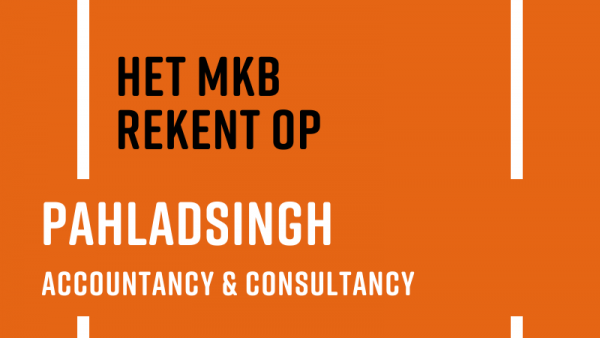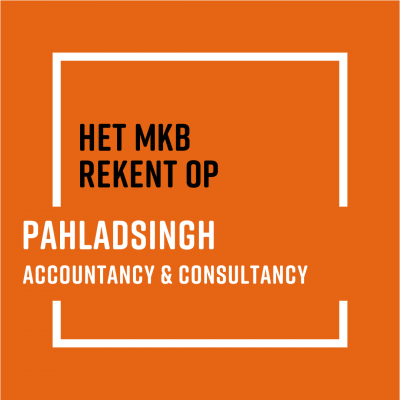Work more efficiently (and cheaper) with your accountant!

As a business owner or director, you deal with an accountant with whom you want to work as efficiently as possible. Not only will this save you time and noise in communication, but it will pay off in lower costs and satisfied employees. In this article, we give you ten tips for working efficiently with your accountant.
- Make agreements. This is obvious, of course, and often you have signed an order confirmation or accepted an offer and that seems sufficient. In practice, this is the starting point to make further agreements. Part of these agreements include naming the following:
- Who is the point of contact between you and the accountant ? Make sure there is one person who makes, records and monitors the agreements. This person is then also responsible for informing you in good time about any problems regarding the achievement of the agreements, and prevents you from making agreements for which no responsibility is taken. In this respect, it is useful to record and monitor the agreements in a shared document.
- How are documents exchanged? When working together with your accountant, documents will have to be exchanged from time to time. Here, it is important to make agreements on the management and exchange of files. The simplest way is to send files back and forth via e-mail or Whatsapp. However, this has the risk of data leaks, which may require reporting to the FG and AP. A better way is to use a shared network drive or a secure environment such as SharePoint or another application. Again, it is good to make further agreements on how files are shared, who has access, and what happens when the work is finished. It is also important to agree on naming conventions for files, such as the initials of the author, the date and the version (draft or final). An example is 'Financial statementsPPAV01' for the first version prepared by person 1 and 'Financial statementsMVDV02' for a second version. Via a folder structure (old and new), it can be prevented that the latest version is no longer clearly recognisable, by placing previous versions in the 'old' folder.
- Ask for regular progress reports from your accountant. Nothing is as annoying as unpleasant surprises afterwards. That is why it is useful to make agreements about the progress report. You can ask about delivery bottlenecks, progress and budget agreements. Ask explicitly whether the agreements on deadlines and budget are still feasible, or whether there are any potential setbacks.

- When auditor team members change, they may not yet have the necessary knowledge and experience. Therefore, make arrangements with your accountant to guide and explain procedures and systems and whether and how they will be charged.
- Changes in audit approach or audit activities. During the execution, the auditor may decide to change the audit approach than previously agreed with you or perform different audit activities compared to previous years. If this is the case, it is important to ask whether this affects the agreements (deadlines) and the agreed budget. Without a clear explanation or motivation, it is obvious that this need not affect the agreements made.
- External circumstances. Various unexpected, external influences are possible. These can range from power cuts, (temporary) failure of employees or team members, ICT problems and new laws and regulations. It is not possible to anticipate all possible influences. Force majeure is often named in the agreed general terms and conditions. If such an unexpected event occurs, it is important for both parties, to inform each other and agree on the implications for progress, time, deadlines and budget. Alternatives can also be discussed such as a later delivery or the replacement of employees.
- Efficiency improvements. Before and during the execution of the audit work, it is important to discuss and agree on opportunities for further process and efficiency improvements in good time. By doing this already during implementation, efficiency improvements can be achieved immediately and there is no need to wait until next year. This could include ICT solutions that can take over routine operations, such as version management and collation.
- Evaluation. An important point for efficiency improvement is evaluation of the audit process. Points that could lead to efficiency improvements include not repeating audit work annually, but, for example, on a rotational basis, and combining and coordinating internal audit work with the auditor's work through agreements on partial observations, work and records. The auditor could then use the work performed internally.
- Impact of changes in systems and processes. Changes may also occur in systems and processes during the audit that are relevant to, or affect, the auditor's audit. By making arrangements with suppliers and coordinating the changes with the auditor, the progress of the audit and possible interruptions can be anticipated.
- Preparatory work. The auditor will request deliverables, such as specifications and reconciliations, prior to the audit. This is also known as the LOTS list (List of Deliverables) or the PBC list (Prepared by Client). Here, it is important to agree how the data will be exchanged, in what form (file type) and whether previously delivered documents that have not changed, such as contracts, agreements and process descriptions, will suffice.
- Joint work and commitments. By making arrangements of carrying out partial joint work, efficiencies can be achieved, and thus audit costs can be repaid. To this end, agreements on planning, execution and recording should be made. These will mostly be routine activities that are easy to reproduce. Examples are personnel costs (control on entry and exit), external costs (purchases, payments) and depreciation and investments.
